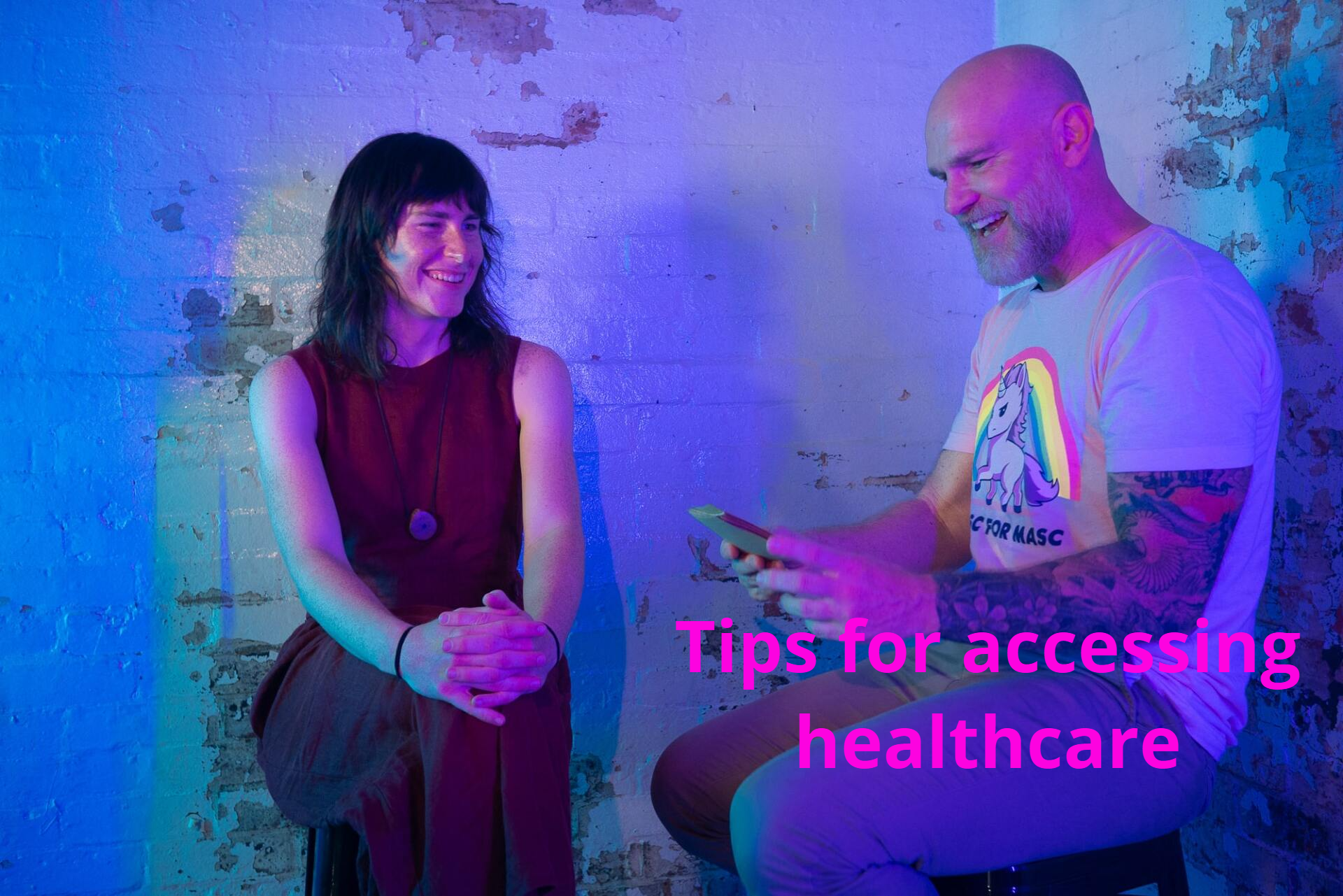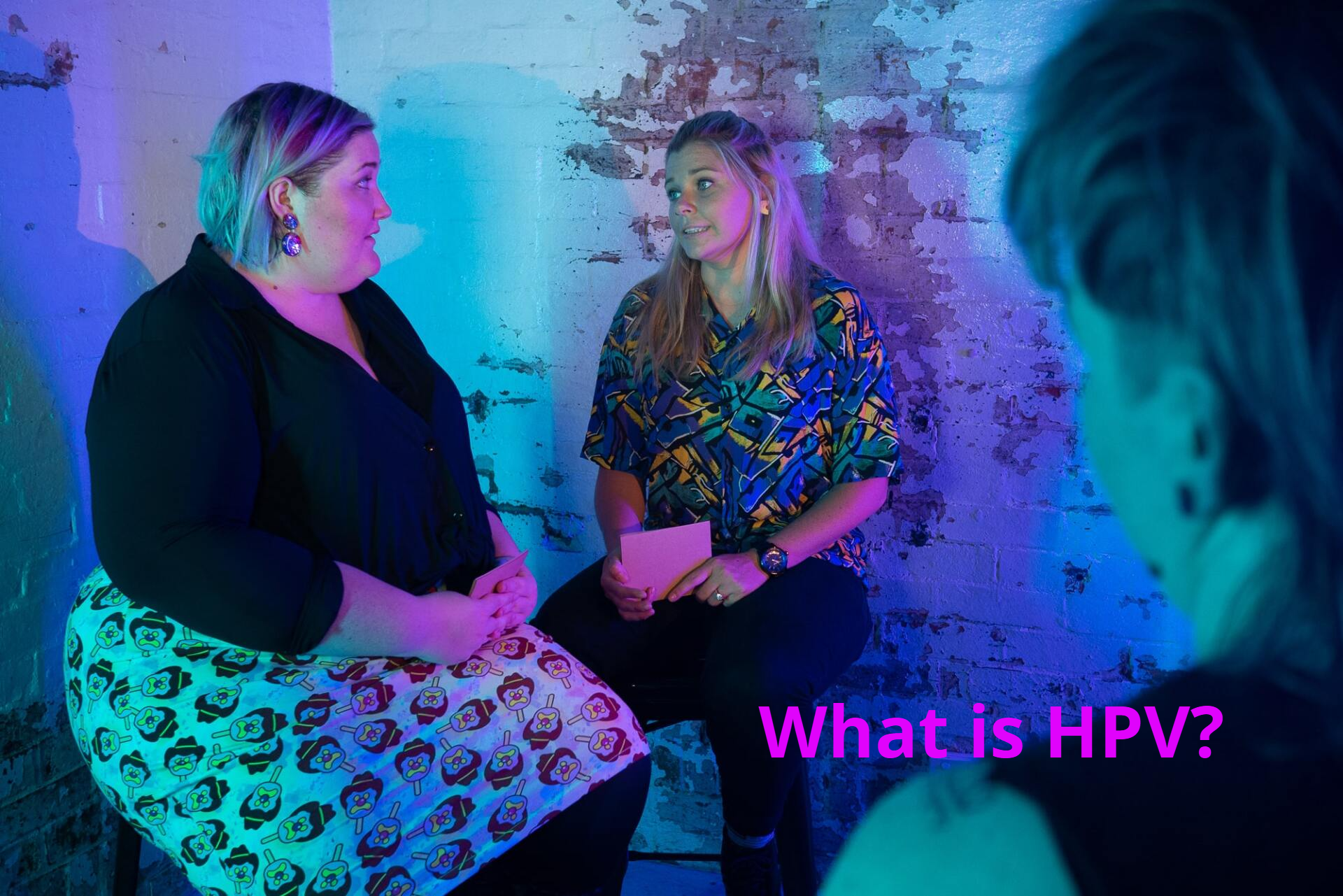Testing, screening and treating HPV
In this video, LGBTIQ+ people discuss what HPV testing, screening and treatment in the context of the community.
The video will cover the following topics:
- Testing for HPV
- Cervical screening
- Signs and symptoms
- Myth busting re cervical screening
- Intersex people and screening for HPV
- Neo-vagina and screening for HPV
- Observing genitals for lumps, bumps, lesions, changes
- Hysterectomy and cervical screening
- Gay, queer, bi men and HPV
- Anal intercourse and HPV – rectal examinations for lesions
- HPV, HIV+ and anal cancer
- HPV vaccination
Video Transcript
How can you test for HPV?
There's actually not really test for it as far as I know. You just kind of have to be aware of symptoms that you can get from it.
Testing for HPV is a little bit limited. The only test that's currently available is what's known as a cervical screening test. Some folks may know that previously is a Pap smear. A pap smear used to test for cancerous cells on the cervix. Now the cervical screening test actually tests for presence of HPV infection, which is great because we're sitting more and preventative space now, not in a ‘Oh my God, now there's cancer and we have to deal with that’, which is really cool. And that's why a cervical screening test only needs to happen every five years now. That's the only test that's actually available for HPV. That test is really, really important for anyone who has a cervix. Outside of that, if you don't have a cervix but you still have a human body, it's about being really in tune with your body and what feels normal for you, and then noticing when things change.
Do trans men or nonbinary folk with the cervix need cervical screening?
So everybody who has a cervix should definitely get cervical screenings no matter what you're doing with who and with what bits. Like if you've got a cervix, you're at risk.
I've had a bunch of them and I didn't even hate them at all. Not opposed to the old cervical screening.
For trans folk and nonbinary folk who are cervix owners, it can be a bit more difficult to approach and receive treatment.
I guess trans and non binary folk perhaps like us, if they put it off for quite some time, we’re possibly at higher risk. HPV could become cancer. In a high risk category.
We are, which is why it's important to get cervical screening tests if you have a cervix. That means you.
Can you officially debunk the myth that lesbian, gay, bisexual, or queer women who have a cervix don't need cervical screening?
It's so important for anybody with a cervix to have a cervical screen test for HPV. That includes queer women, lesbians by trans folk with a cervix. Anybody with a cervix, it is important to be having cervical screening.
People think that because they're not having sex with men or because they're not having penetrative sex that they don't need to have a cervical screening test and it's just not true. If you have a cervix, no matter what you're doing with it or not doing with it, you need to get it checked.
Don't be ashamed, just do it. Everybody does it. We just don't talk about it.
Talk about it. Go along with them. Group date.
So for someone who has an intersex variation, what testing should they know about?
Folks who have intersex variation are often very invisible in our communities, and in the healthcare world. And there's not a lot of expertise in this space, which is difficult because then that lands the community having to advocate for themselves. But when it comes to cervical screening or HPV related healthcare, the message is very similar. So, if you have a cervix, definitely work through what you need to do to access a cervical screening test. If you don't know if we have a cervix, you can also chat to a doctor that you trust that will be able to do an examination to see and let you know if that's the case. If you don't have a cervix, it's just keeping across your body what's normal for you and then noticing if there's any changes and then speaking into a healthcare provider you trust to get that investigated to see if there's anything going on.
If the person doesn't know if they have a cervix, ask your GP. They'll be able to help you find out.
Yeah, and I guess that goes for anybody who's had any sort of surgeries relating to cervix areas, whether they still have a cervix or not. And that might apply to intersex folk or anyone who's had hysterectomies and such.
And to not have any shame, asking doctors about that.
Totally.
That’s their job.
If you've had vaginoplasty or have a neovagina, do you need to get a cervical screening test?
If you had a vaginaplasty or if you have a neovagina, you don't have a cervix, so you can't actually get a cervical screening. It won't be effective, but the skin and everything that goes into actually creating the neovagina is still really susceptible to HPV.
You are at a bit of a higher risk actually for HPV, so it's really important to get those areas tested
Because the skin that's used to make neovagina is highly susceptible to HPV, isn't it? But even though it's not easy to test for, if anything people should be extra vigilant checking for changes. Especially you would have spent so much time, energy and money on your new vagina.
I think that's a bit of confusion around only cervix-owning people getting cervical screenings because that's the best way to test for HPV. But anyone, regardless of your body and what's going on for you, you should definitely be checking for changes, whether that's lumps or bumps or lesions or abrasions, the things that maybe weren't that way before. And I'm sure you can get lovers to help out with that testing as well. It doesn't have to be like a solo, boring activity. It can be fun and exploratory.
So you can become very susceptible to HPV and you have to be aware, I guess, of all your holes. You have to make sure that if anything changes, you’re keeping your eye on that, you're going to your GP. It's all about coming back to healthcare, really.
I love it. Be aware of all your holes, get your holes checked.
If you've had a hysterectomy and you no longer have a cervix, it's been removed, should you still have a cervical screening test?
No, not if you don't have a cervix.
If you have it in a jar or something.
You can have a cup of tea with it, but you don't need it screened, no.
No, you don't have to, because you no longer have the cervix.
Basically, if you've had a hysterectomy, which is when your uterus is removed, surgically removed, if they take your cervix as well, which is at the bottom of the uterus, then there's no cervix for there to be a cervical screening test, so you don't need to have it. But for some people, they might have a hysterectomy where the cervix is kept at the top of the vagina, and so for those people they'll need to check with their GP, because presumably they will need to have their cervical screening tests done regularly.
Why is HPV relevant to gay, bisexual, queer men or men who have sex with men?
Because we have bodies like everyone else and we can catch things like everyone else! I know, wow! Because study after study has shown people who have higher levels of anal intercourse, you know, have higher rates of HPV. It’s a direct correlation. It's anybody who has more anal sex, they're at a higher risk and I know that particularly HIV positive men are at a much greater, over 100 times greater risk.
In the community, whether it's the LGBTIQ+ communities or mainstream world, is that HPV and cervical screening or health is a women's issue, and that's just not true. So if you like anal sex, if you like bum sex, you can be at risk of HPV. If you are also a person that's HIV positive, you're 100 times more likely to develop anal cancer from a HPV infection. That's really, really critical, important information for the queer communities to know about. And it's really, really important that queer men or men who are having sex with men are also getting regular sexual health checkups and having the finger up the bum to feel around for any changes. Same goes if it trans folk, nonbinary folk, if that's a type of play that you enjoy, you need to be taking care of yourself about that.
As a lesbian, really important to not only, you know, get your cervix checked everything. But something we don't often talk about is that people really do enjoy that stuff.
Yeah so it's important to get a rectal examination.
Exactly. So it's really important to talk with your doctor and make sure to get a finger up the butt and they will feel, they'll feel for lesions and that's the way they checked the HPV.
I think we keep coming back to this point around, you know, if you have the cervix, you should get tested. And if you don't, and you fit into one of those other groups, that's a bit of a higher risk you should also be really aware of getting tested. So I think it's just about awareness. Just again, being aware of your body and taking control of your health.
Exactly. Take control.
Take control.
Why is it important for the LGBTIQ+ people to access the Gardasil vaccine?
Because we all have a body, regardless of our bodies, our genders, our sexualities. If we're having sex with other people, we are likely to come into contact with HPV. The Gardasil vaccine protects us against the most common strands of HPV. So, it is recommended that if you can afford it, is an expensive vaccine which is a barrier which is worth acknowledging, but if you can afford to do it, it’s definitely beneficial to get it.
My message would be particularly younger people, is to ensure that you're getting that that immunisation because it works and it can avoid something really awful like a cancer diagnosis later.
That's so true. And it also it protects everyone else around you and your life.
Peace of Mind.
That's what everyone wants really.





